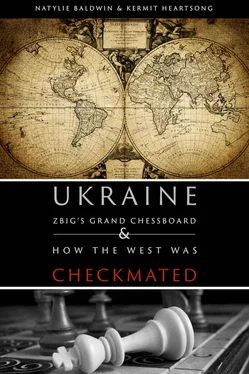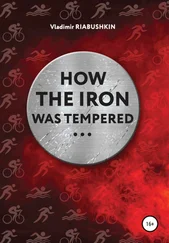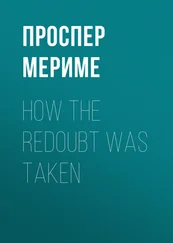Kermit Heartsong - Ukraine - ZBIG's Grand Chess Board & How The West Was Checkmated
Здесь есть возможность читать онлайн «Kermit Heartsong - Ukraine - ZBIG's Grand Chess Board & How The West Was Checkmated» весь текст электронной книги совершенно бесплатно (целиком полную версию без сокращений). В некоторых случаях можно слушать аудио, скачать через торрент в формате fb2 и присутствует краткое содержание. Год выпуска: 2015, Жанр: Политика, на английском языке. Описание произведения, (предисловие) а так же отзывы посетителей доступны на портале библиотеки ЛибКат.
- Название:Ukraine: ZBIG's Grand Chess Board & How The West Was Checkmated
- Автор:
- Жанр:
- Год:2015
- ISBN:нет данных
- Рейтинг книги:4 / 5. Голосов: 1
-
Избранное:Добавить в избранное
- Отзывы:
-
Ваша оценка:
- 80
- 1
- 2
- 3
- 4
- 5
Ukraine: ZBIG's Grand Chess Board & How The West Was Checkmated: краткое содержание, описание и аннотация
Предлагаем к чтению аннотацию, описание, краткое содержание или предисловие (зависит от того, что написал сам автор книги «Ukraine: ZBIG's Grand Chess Board & How The West Was Checkmated»). Если вы не нашли необходимую информацию о книге — напишите в комментариях, мы постараемся отыскать её.
Ukraine: ZBIG's Grand Chess Board & How The West Was Checkmated — читать онлайн бесплатно полную книгу (весь текст) целиком
Ниже представлен текст книги, разбитый по страницам. Система сохранения места последней прочитанной страницы, позволяет с удобством читать онлайн бесплатно книгу «Ukraine: ZBIG's Grand Chess Board & How The West Was Checkmated», без необходимости каждый раз заново искать на чём Вы остановились. Поставьте закладку, и сможете в любой момент перейти на страницу, на которой закончили чтение.
Интервал:
Закладка:
Although many countries become NATO members first and then make their way into the EU, plans to reverse that sequence have been formulated with NATO membership not being far behind once EU membership has been established. There are various instruments that the EU utilizes under its European Neighborhood Policy (ENP) to expand EU membership. One is the European Neighborhood and Partnership Instrument (ENPI) that facilitates the conversion of economies to a privatized Neoliberal capitalist system. After the privatization of state and public assets takes place in the target country, a Stabilization and Association Process (SAP) is implemented in which these assets are scooped up by French, British, German, Italian, Canadian, and American corporations, thereby preventing economic independence (Nazemroaya 2012).
Recent recipients of the ENPI brand of political and economic manipulation are Ukraine, Georgia, and Moldova via the new-fangled Eastern Partnership (EaP) instrument — a kind of preliminary SAP that opens up borders and mandates economic restructuring towards the privatized Neocolonial process stated above, but makes no promises of EU membership or any of its reputed privileges. These same three countries have also been wooed by the Eurasian Union (Nazemroaya 2012).
Analysts have recognized a disturbing pattern with countries that resist the ENPI program — they are usually targeted for military operations and attempts at regime change. Until the Ukraine crisis, this had been most apparent in the Southern (MED) arm of the ENPI project, which has included Libya and Syria — an example of the fluid and opportunistic definition of European (Nazemroaya 2012).
In 2006, the EU's Security Strategy was absorbed into NATO during its annual summit. The emphasis of that summit was on securing energy resources with the goal of “co-managing the resources of the EU's periphery from North Africa to the Caucasus” (Nazemroaya 2012). Also implied was the goal of redefining the EU's security borders in synch with both Franco-German and Anglo-American economic and geopolitical interests, indicating a rapprochement of the rift that temporarily cropped up between the axes as a result of the Iraq War. Around this time, the idea of ultimately creating a common economic union of Europe and North America was floated, along with one day totally integrating the EU with NATO (Nazemroaya 2012).
In February 2007, then-Secretary of Defense Robert Gates admitted to Congress that Russia and China were officially viewed as threats. Several days later, the chief of the Russian Armed Forces, General Yuri Baluyevsky, told the Russian public that they faced a threat from the US and NATO greater than during the Cold War and urged commensurate preparations. Shortly thereafter, Putin complained during the Munich Conference on Security Policy that NATO was targeting Russia (Nazemroaya 2012).
I am convinced that the only mechanism that can make decisions about using military force as a last resort is the Charter of the United Nations. And in connection with this, either I did not understand what our colleague, the Italian Defense Minister, just said or what he said was inexact. In any case, I understood that the use of force can only be legitimate when the decision is taken by NATO, the EU, or the UN. If he really does think so, then we have different points of view. Or I didn't hear correctly. The use of force can only be considered legitimate if the decision is sanctioned by the UN. And we do not need to substitute NATO or the EU for the UN. When the UN will truly unite the forces of the international community and can really react to events in various countries, when we will leave behind this disdain for international law, then the situation will be able to change. Otherwise the situation will simply result in a dead end, and the number of serious mistakes will be multiplied. Along with this, it is necessary to make sure that international law has a universal character both in the conception and application of its norms…
I think it is obvious that NATO expansion does not have any relation with the modernization of the Alliance itself or with ensuring security in Europe. On the contrary, it represents a serious provocation that reduces the level of mutual trust. And we have the right to ask: against whom is this expansion intended? And what happened to the assurances our Western partners made after the dissolution of the Warsaw Pact? Where are those declarations today? No one even remembers them. But I will allow myself to remind this audience what was said. I would like to quote the speech of NATO General Secretary Mr. Woerner in Brussels on 17 May 1990. He said at the time that: “the fact that we are ready not to place a NATO army outside of German territory gives the Soviet Union a firm security guarantee.” Where are these guarantees? (Putin 2007)
The configuration of NATO currently reflects a Pan-European entity ensconced in an Anglo-American security apparatus, but given the aforementioned dynamics and rivalries, it doesn't have to remain that way. Recent events playing out in Eurasia reflect the strong engagement of Russia with the European Union over the past decade, much to the consternation of the Anglo-American axis as Nazemroaya states:
The alliance is increasingly being viewed as a geopolitical extension of America, an arm of the Pentagon, and a synonym for an evolving American Empire… Ultimately NATO is slated to become an institutionalized military force…Nevertheless for every action there is a reaction and NATO’s actions have given rise to opposing trends. The Atlantic Alliance is increasingly coming into contact with a zone of Eurasia that is in the process of emerging with its own ideas and alliance. What this will lead to next is the question of the century. (Nazemroaya 2012)
Ukraine
In Jack Matlock’s 2010 book, Superpower Illusions , he provided a description of modern Ukraine's complex political history and demographics that proved prophetic with respect to the post-coup problems we are currently witnessing: “Well over half of Ukrainian citizens oppose the country’s entry into NATO. To understand why, one must bear in mind that Ukraine’s biggest security problem is not Russian “imperialism” but political, social, economic, and linguistic divisions inside the country.” Prior to WWI, the western area of modern-day Ukraine was part of the Austro-Hungarian Empire and the southeastern areas part of the Russian Czarist Empire.
Matlock concluded that any attempts to bring Ukraine into NATO would have dire consequences. Putin made this very argument to then-National Security Advisor Condoleezza Rice during an October 2006 meeting that became heated when the subject of Ukraine's potential future entry into NATO came up. According to Russian Foreign Minister, Sergei Lavrov, who was present, Putin tried to impress it upon Rice that efforts to bring Ukraine into NATO would be disastrous all the way around: “Putin explained what Ukraine was — at least a third of the population are ethnic Russians — and the negative consequences that could arise, not only for us but for all of Europe if Ukraine and Georgia were dragged into NATO” (Roxburgh 2013).
American Ambassador Bill Burns who was with Rice at the meeting stated that Rice responded by declaring that each sovereign nation had the right to decide for itself which institutions or alliances it wanted to join. Putin reportedly replied in what would turn out to be prescient terms: “You do not understand what you are doing. You are playing with fire” (Roxburgh 2013).
To demonstrate the disingenuousness of Rice's argument, try to imagine the following: Russia convinces Mexico to join a military alliance hostile to the US. In response, US leaders proclaim that Mexico has the right to join any alliance it chooses and they have no concerns.
Читать дальшеИнтервал:
Закладка:
Похожие книги на «Ukraine: ZBIG's Grand Chess Board & How The West Was Checkmated»
Представляем Вашему вниманию похожие книги на «Ukraine: ZBIG's Grand Chess Board & How The West Was Checkmated» списком для выбора. Мы отобрали схожую по названию и смыслу литературу в надежде предоставить читателям больше вариантов отыскать новые, интересные, ещё непрочитанные произведения.
Обсуждение, отзывы о книге «Ukraine: ZBIG's Grand Chess Board & How The West Was Checkmated» и просто собственные мнения читателей. Оставьте ваши комментарии, напишите, что Вы думаете о произведении, его смысле или главных героях. Укажите что конкретно понравилось, а что нет, и почему Вы так считаете.











